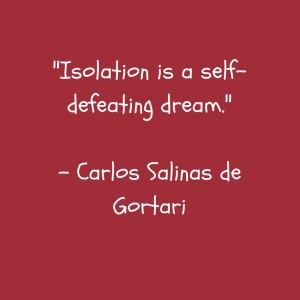I was recently invited to be a guest speaker on Keeping A Head, a segment on the Brain Injury Network Radio, where I was part of an important conversation offering hope and inspiration to brain injury survivors and caregivers. For over one hour I joined co-hosts Chrissy Chernosky and Jim Bono, each of us sharing tips and strategies that have helped us successfully move forward after sustaining a traumatic brain injury (TBI).
Most of the information we shared, and the questions taken from listeners, covered common themes that apply to all who are dealing with significant life changes.
You can listen to our conversation here.
One of the listeners, who is six months into his brain injury, called in saying he’s feeling isolated and asked if I’d experienced the same feeling after my injury. And if so, how had I overcome it? I remember all too well how I dealt with depression after my injury and how, out of self-preservation, I had made the decision to pull back from friends and avoid many of social gatherings. I shared my experience with him, adding in that in hindsight, pulling back was one of the worse things I could have ever done.

Isolation and loneliness aren’t your friends. Aside from how both can limit our basic happiness and cause havoc with our health (increased blood pressure, weight gain, lower immune and increased stress just to name a few), each is associated with clinical depression and restless sleep patterns. Our desire in wanting to be alone, out of fear of rejection or being judged, can lead to self defeating and very negative self talk. It can also become a self-fulfilling prophecy. There can be times when we may find ourselves in situations where we are around others and without even realizing it, we are putting out the signal that we are unapproachable. People pick up on this and it leads them to not wanting to approach us which further drives our behavior in wanting to protect ourselves even more. It’s a vicious circle and one that can be difficult to break.
We all need to feel loved.
We all need to be surrounded by friends and family who genuinely care about our health and well-being.
We all need to have opportunities where we can engage with others so we can get our minds focused on other things rather than our own personal issues, concerns and stressors.
“Human beings are social creatures. We are social not just in the trivial sense that we like company, and not just in the obvious sense that we each depend on others. We are social in a more elemental way: simply to exist as a normal human being requires interaction with other people.”
– Atul Gawked
When you’re going through a difficult period or dealing with a personal hardship, being part of a community or social group creates a sense of belonging and leaves you with a feeling of peace knowing that you are not alone. It’s a place where you can be around others where you are accepted and appreciated for who you are, not who you think you need to be. Communities provide you with a feeling of hope, where you are able to see a light at the end of the tunnel when before there was only darkness.
The Brain Injury Radio Network provides a great platform to TBI survivors and caregivers. It’s a community of individuals who are united in wanting to help each other be successful in their own unique and individual journey. They provide support seven nights a week that covers an array of topics, with Keeping A Head on air every 2nd and 4th Tuesday of each month. Regardless of where you are in your journey, make it a priority to find an outlet where you can be around others who are familiar with the challenges or personal struggles you may be facing. Find a safe place where you can ask questions, share ideas and get information.
Sometimes it’s all about taking that first step that brings you closer towards hope. Don’t be afraid to reach out to someone for help. Your personal journey doesn’t have to be a solo one.












Leave a Comment